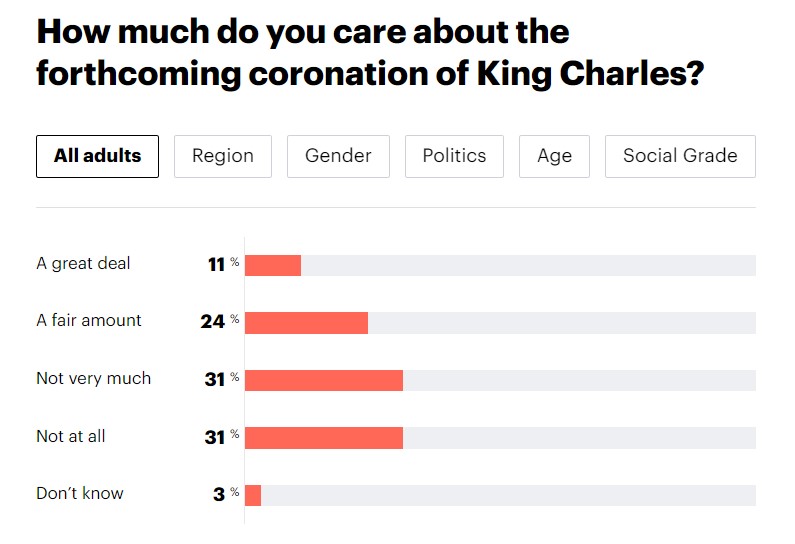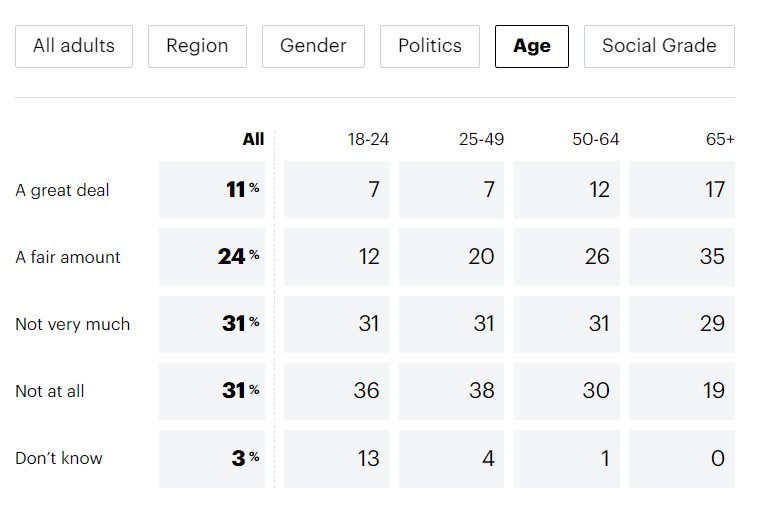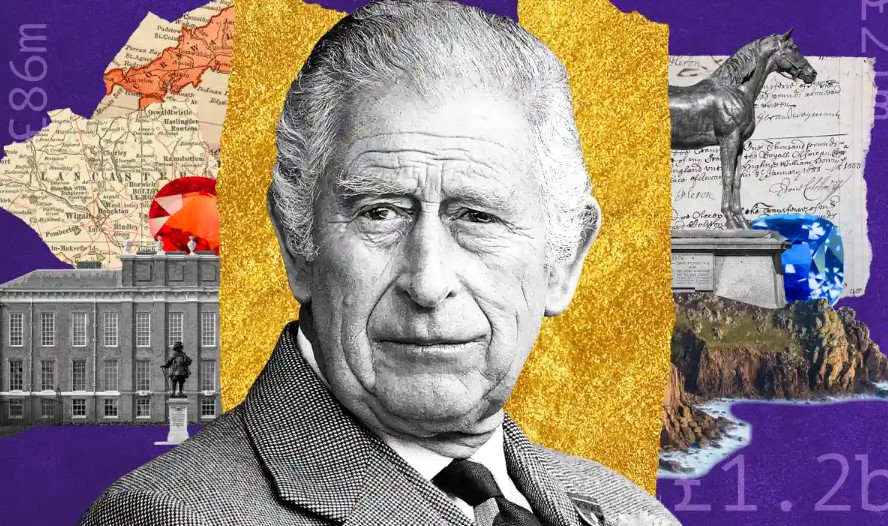By John Pickard, Brentwood and Ongar Labour member.
It is likely to be the circles I move in, of course, but I don’t know a single person – friend, family member or neighbour – who is likely to swear the ‘oath of allegiance’ to the new King Charles III on the occasion of his coronation. In fact, most of the people I know will be desperately working out how to avoid the wall-to-wall coverage on TV.
Even among the most curious, those who might be tempted to watch some coverage of what is after all an historic occasion, will soon tire of the endless and mind-numbing inanities of the BBC’s royal commentators. For many avid royal watchers, a bit of pomp and ceremony is one thing, but a relentless stream of sycophancy can put you off your digestive biscuits.
For a monarchy that is supposedly trying to ‘modernise’ itself, the idea of an oath of allegiance, repeated aloud in front of TV sets, is a strange idea. Even in medieval times, it was only the lords and nobles who swore their fealty to the throne. It has been suggested that one of the reasons is that it might be a cack-handed idea from one of Charles’ advisors, to try to involve the general public – because otherwise they (the public) might somehow imagine that the Royal Family is remote from them. I wonder what gave them that idea?
It might be that the royal household policy wonks have been looking at opinion polls that show how much ordinary people feel they are removed from royalty. According to YouGov polls, sixty two percent of all adults are either “not very much” interested in the Coronation, or “not at all” interested. That is nearly two thirds. Among young people, the position is even more dire for Charles. Of all 18–24-year-olds, 67% are either not very or not at all interested. Another poll shows that nearly one in four in the same age category would prefer an elected head of state.

Three quarters of Labour voters not interested
Keir Starmer, instead of basting himself in royal oils, ought instead to take note of the fact that according to YouGov, 76 per cent of Labour voters come under the categories of being not very much or not interested at all.
Even the Financial Times, as sober a voice as ever, notes the fact that support for Charles is at least twenty percentage points below that of his mother. It is also reasonable to suppose that were it not for the fact that there is wall-to-wall coverage of every royal event from almost the whole of the media – certainly all the tabloids and the BBC – and a lot of toadying in between times, that the general support for the monarchy would be a lot less than these polls show. In fact, it is remarkable, under the circumstances, that opposition to the monarchy is as high as it is.
There is, of course, a serious side to all the pageantry. It has not gone unnoticed that the whole show will cost the tax-payer – not Charles himself – the ‘princely’ sum of £250m, including all the security that will be laid on. This could easily build a large modern hospital and probably provide well-paid staff for it for a number of years. If Charles Windsor was really concerned about ‘his’ subjects, a hospital dedicated to his name would have been a lot more useful.
Charles’ vast wealth is kept hidden from his loyal subjects
When Rishi Sunak became Prime Minister, Left Horizons said that it was the first time in British history that the family in 10 Downing Street were wealthier than the family in Buckingham Palace. That has to be corrected. Sunak is still the richest-ever Prime Minister, and by a long way. But recent revelations by The Guardian have shown that Charles and Camilla are worth nearly £2bn, which is over twice the Sunak family fortune.

Once again, it is worth noting that for a monarch who allegedly seeks to ‘serve’ his people, a large part of that wealth is deliberately hidden from view. Hidden from ‘his’ loyal subjects, no less. Charles is very fond of making appearances and having photo opportunities at charities, like those for young people or the homeless.
But when he does these visits, nodding his head politely and smiling through gritted teeth, we doubt if he is thinking about how he can use some of his vast fortune to help out the unfortunates he is gracing by his presence. The Guardian today (May 4) reports that Charles has 18 (yes, eighteen) personal residences, ranging from a posh cottage to Buckingham Palace. Combined, they have around 2,000 rooms and God knows how much they take to maintain.
None of this vast wealth is earned, of course, except in so far as Charles has used the wealth he previously inherited before his mother’s death to further enrich himself. One can easily see that instead of being a friendly, slightly eccentric but harmless old buffer – such is the public image he wants us all to see – Charles is, in fact, a grasping, greedy, self-indulgent, insatiable and above all extremely wealthy, old miser.
The monarchy personifies the Establishment
The other side to all the pageantry, of course, is that it serves a political purpose. This particular occasion is aiming at counteracting the effect of Prince Andrew’s behaviour on public perceptions, and the perceived ill-treatment of Diana and then Prince Harry, who had the temerity to marry a woman of colour.
But above all, the monarchy represents and personifies the Establishment, not those who think they run the country (ie the voting public), but those who really run the country, and in fact own the country. In the event that the voting public were to elect a government that seriously threatened the power, privilege and wealth of the British ruling class, the monarchy would be part of the large arsenal of political weaponry that would be deployed against that government. That is the reason why the monarchy is deliberately kept in the public eye as much as possible – through a regular parade of royal events: weddings, jubilees, funerals, and now a coronation.
Charles is actively involved in politics already, although he pretends not to be. His personal flunkies and accountants exercise the royal prerogative to vet every bill and regulation going through parliament to see if any of new legislation or tax measure affects Charles’ financial interests – and to seek amendments and exemptions if they do. It is another aspect of the monarchy that Charles keeps hidden from his loyal subjects. But in the event of a grave national political crisis, Charles’ political role would be much more open. The monarchy would be wheeled out as a focus for reaction, as a stick with which to beat an elected ‘left’ government.
The display and splendour of the Coronation, therefore, and the ‘oath of allegiance’ all play some role even if it just seems like tourist-fodder at first sight. The royal events and ceremonies all make some contribution, however small it may appear, to keeping the monarchy pot simmering gently and consolidating the political weight of reaction for the future.
Meantime, in my household, there may be a lot of swearing and oaths. But not the sort that the BBC like to broadcast before the 9 o’clock watershed.
[Photo top: Graphic from The Guardian]



